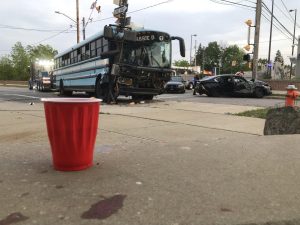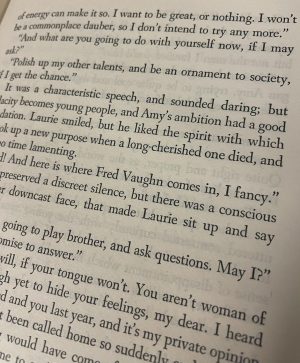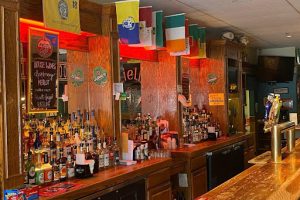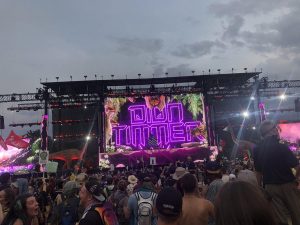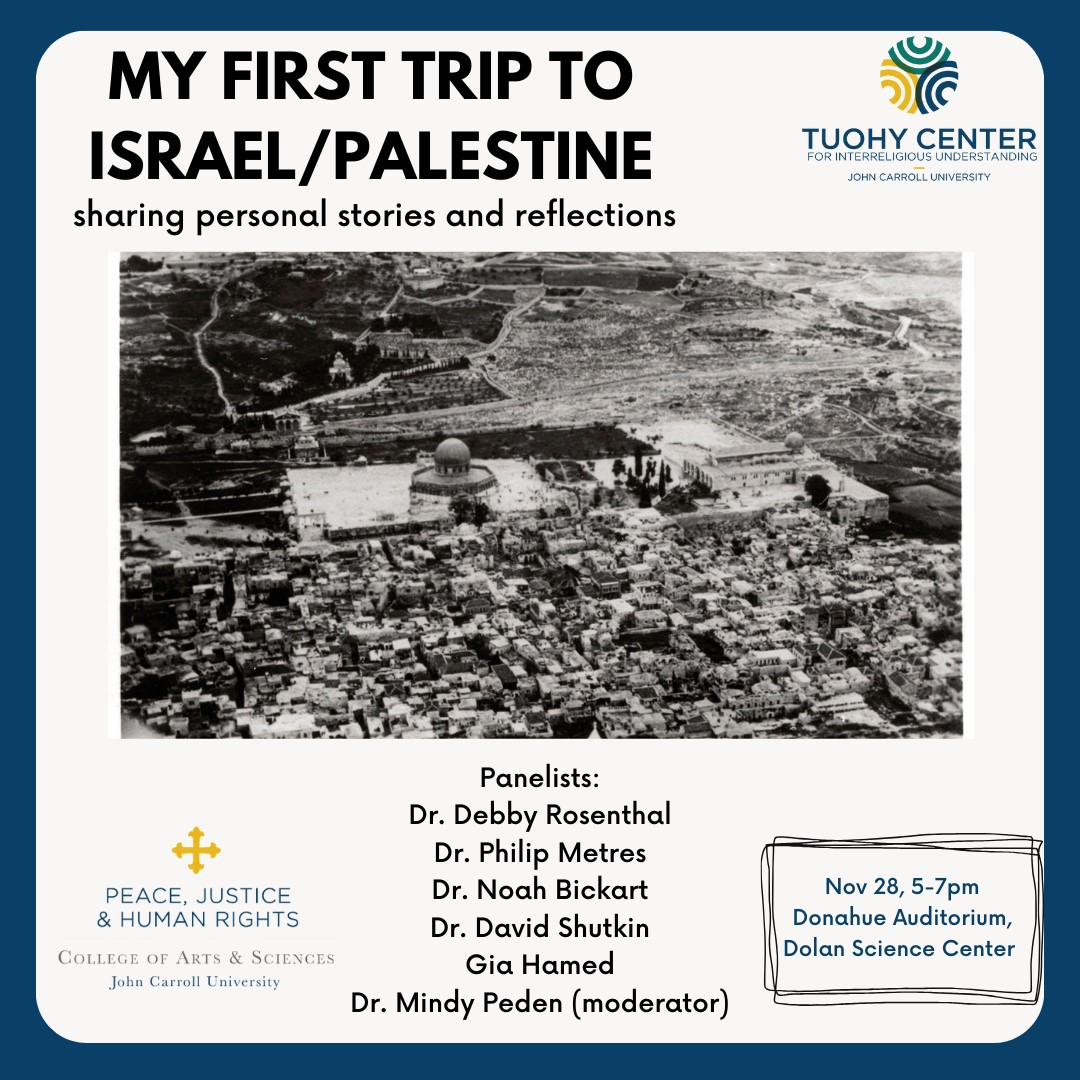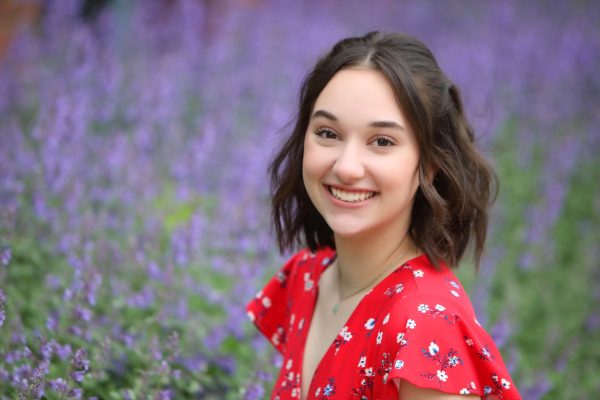On Tues., Nov. 28, a panel discussion titled “My First Trip to Israel/Palestine: Personal Reflections and Stories” was held in the Donahue Auditorium to discuss the current events happening in Israel/Palestine from the perspective of those in the JCU community.
The panel of speakers was moderated by Dr. Mindy Peden (Political Science) and featured Dr. Debby Rosenthal (English), Dr. Philip Metres (Peace, Justice and Human Rights), Dr. Noah Bickart (Theology and Religious Studies), Dr. David Shutkin (Education) and Gia Hamed ‘24 (senior, Political Science and PJHR major, president of JCU’s chapter of Students for Justice in Palestine) as speakers.
The event was sponsored by John Carroll’s Tuohy Center for Interreligious Understanding and was initiated by Hamed. The two main goals for this speech, as defined by Hamed, were as follows: “first, to create a safe, constructive, beneficial and academic space for dialogue, and second, to build and foster empathy between all types of people no matter their ideologies.”
The discussion brought in a large crowd, almost filling the auditorium. People of all ages were listening, from students to faculty, with the event only being for the JCU community.
The discussion itself consisted of four main questions which were written by Hamed. The questions were split in two with the first two being asked in the first round and the last two being addressed in the second round. These two rounds of questions were then followed by a Q&A session with the audience.
The first set of questions asked were: “when was the first time you visited the land of Israel/Palestine? Could you describe how that experience felt? How has your experience in Palestine/Israel impacted your views in relation to its meaning to you?”
First to speak was Metres, who shared his own experience of visiting Palestine for a wedding. He described the Palestinian joy and culture found at this wedding, despite the conflict already found there.
Next to speak was Bickart, who shared his experiences of visiting and living in Israel/Palestine for a few years throughout his life. He described what it was like to experience the reality of the occupation firsthand, especially when he was living in Jerusalem in the early 2000s.
Rosenthal spoke next, discussing the seven times that she has been to Israel/Palestine. She highlighted her experience within Jewish culture, growing up as a secular Jew. To illustrate, when describing one of the many experiences that she had growing up, she said that her “family belonged to the Jewish community center because my dad remembered that Jews weren’t allowed to join the YMCA.”
Next, Hamed spoke on her experiences with Palestine and the hardships that come with such travel. She also highlighted the beauty of Palestine, mentioning how accepting the people were towards her.
Lastly, Shutkin described how he took many trips to Israel growing up, moving there in 1987 and visiting Palestine six times since 2015 to engage in “solidarity activism and civil disobedience” as a member of the Center for Jewish Non-Violence. He shared that “our nonviolent actions are always supported and led by our Palestinian partners who share out commitment to nonviolence.”
The second set of questions asked were: “Does being pro-Palestine make you anti-Semitic? What does Zionism and/or Palestinian nationalism mean to you? Any final thoughts to leave the audience with?”
One answer came from Bickart, who explained that no, it does not. He further shared that “between the river and the sea which we hear so much about, neither the Jewish Israeli community nor the Arab Palestinian community is going anywhere…the first step to peace, in my own understanding, is that recognition of the fact that nobody is going anywhere and that somehow people are going to have to live together.”
In addition, Metres gave his thoughts, and then gave information to his class about Israeli/Palestinian literature. He shared that “we are all fatally in bubbles. Social media is praying upon our desire to hear only what we want to hear. Social media is killing us, sometimes literally and certainly traumatizing. We need to find ways to get out of our bubbles.”
Hamed made connections between the displacement of Native Americans and the current events in Israel/Palestine, saying that “we recognize that America is great…but there is also some dark stuff. And I think the same could be said for what is happening in Israel. Seeing it play out in front of our eyes right now is very hard and very scary and I would just say to see things with nuance.”
After all of the panelists gave their thoughts, the final Q&A portion of the panel began, allowing the panelists to speak on topics from the origins of Zionism to the right of return. Questions were asked by both students and faculty members, concluding a night of dialogue.


